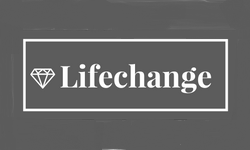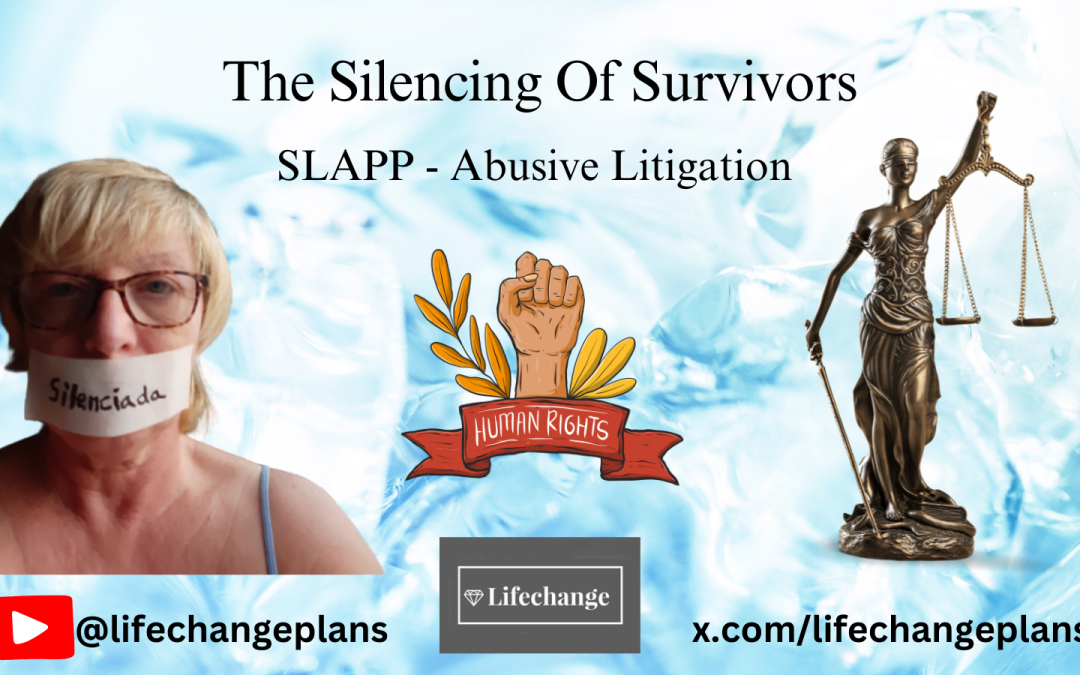Abusive Litigations
In recent years, abusive litigation has become a common tool used by powerful individuals to silence those who dare to speak out on matters of public concern, particularly in cases involving abuse, sexual violence, and defamation. This tactic is often referred to as a Strategic Lawsuit Against Public Participation or SLAPP designed to intimidate and financially burden the defendant into silence, rather than seeking genuine justice. SLAPP lawsuits are typically filed with the intention of censoring, intimidating, and silencing critics by burdening them with legal costs.
What is SLAPP and Anti-SLAPP Legislation?
These lawsuits are not initiated for legitimate legal recourse but to intimidate or punish the defendant for speaking on issues of public interest, such as human rights violations or sexual violence. SLAPP suits are an abuse of the legal process and have been increasingly used to attack journalists, media publishers, and individuals—often survivors of abuse—who publicly share their experiences.
In response, Anti-SLAPP legislation has been introduced in various countries to protect free speech and ensure that the legal system is not used to suppress important public conversations. These laws enable defendants to request the dismissal of frivolous lawsuits intended to stifle their voices.
Anti-SLAPP legislation helps to shield individuals speaking out on matters of public interest, such as journalists reporting on government corruption or survivors of domestic violence and sexual abuse exposing their abusers. International human rights law, particularly Article 19 of the International Covenant on Civil and Political Rights (ICCPR), recognizes the right to freedom of expression. Survivors sharing their stories, especially when they concern abusive relationships, are often seen as contributing to matters of public interest and therefore are protected.
Abusive Litigations Against Women: A Growing Threat
Women, in particular, are increasingly becoming targets of SLAPP suits when they speak out about sexual violence and abusive relationships, especially in cases where the perpetrators have not been convicted. Survivors sharing their personal experiences of abuse are often met with civil or criminal defamation claims, as abusers attempt to use the courts to silence them and protect their reputations. In many cases, these women are forced to endure lengthy and expensive legal battles, adding to the trauma they have already experienced. However, despite these challenges, some women have successfully defended themselves in court, setting legal precedents for others.
Women Winning SLAPP Defamation Cases in the UK
In the UK, more cases are emerging where women have successfully defended against defamation claims brought by their abusers. In 2021, a notable case involved a woman who was sued for defamation after sharing her story of domestic violence and financial abuse online. The court ruled in her favour, recognising that her testimony was a matter of public interest, and dismissed the defamation claim. This landmark case highlighted the protection survivors have when speaking about abusive relationships, even without a criminal conviction of the abuser.
Recent UK Cases: Women Fighting Back
1. The Case of Nina Cresswell (2023):
Nina Cresswell’s case is a key example of how defamation claims are used to silence individuals, a type of litigation often referred to as a SLAPP (Strategic Lawsuit Against Public Participation). In 2023, Cresswell was targeted with a defamation lawsuit by her abuser after she spoke out about the sexual violence she endured. Despite the legal challenge, the UK High Court ruled in her favour, affirming her right to speak publicly about her experience, which is protected under international human rights law as a matter of public concern.
This ruling underscores the importance of anti-SLAPP protections, designed to prevent individuals or entities from using legal threats to suppress free speech on matters of public interest. Cresswell’s case is a landmark victory for survivors who speak out against abuse, highlighting the need for stronger anti-SLAPP legislation in the UK to protect those exercising their right to free speech.
For more details on Nina Cresswell’s case, visit UK Anti-Slapp Coalition.
2. The Case of Lee vs. Brown (UK, 2022)
A Judgement was ruled in favour of Ms Vanessa Brown as Mr Lee failed to prove that the publications he complained were defamation had caused or is likely to cause serious harm to his reputation.
QUOTE
“The purpose of defamation law is to enable protection of reputation. It is all about the perception of the claimant in the eyes of ‘the right thinking person’. It is not about the claimant’s own feelings, nor the defendant’s motivation. A case like Lee v Brown, where no large scale publisher is involved, where the issue is alleged coercive control, and the claimant is himself conducting the proceedings, has no place in a defamation court.”
By Julie Doughty – Inform.org
Why Anti-SLAPP Laws Matter for Survivors of Abuse
Anti-SLAPP laws are crucial in protecting not just journalists and media outlets but also individuals—particularly survivors of abuse—who face litigation aimed at silencing them. These laws allow courts to quickly dismiss frivolous lawsuits and award legal costs to the defendants, reducing the financial and emotional burden on those targeted.
For women who share their stories of abuse, especially in a public forum, these protections are essential. Without anti-SLAPP laws, survivors could face a lifetime of silence, trapped in fear of retaliatory legal action from their abusers. Anti-SLAPP legislation ensures that their voices are heard and that matters of public interest, such as domestic violence and sexual abuse, are not swept under the rug by the misuse of the legal system.
How SLAPP Suits Violate International Human Rights
SLAPP lawsuits directly clash with the principles of international human rights law by hindering freedom of expression and undermining access to justice, particularly for survivors of abuse.
Here’s a breakdown of the violations:
- Violation of Freedom of Expression: The right to freedom of expression is a cornerstone of international human rights law, enshrined in documents like the Universal Declaration of Human Rights. SLAPPs directly contravene this right by using the threat of lengthy and costly legal battles to discourage individuals from exercising their right to speak out. This is especially egregious when used against survivors of abuse who are sharing their experiences.
- Unequal Access to Justice: SLAPPs often exploit power imbalances by targeting individuals with limited resources to fight protracted legal cases. This creates an uneven playing field where wealthy individuals or corporations can use lawsuits to silence critics and evade accountability. The sources highlight that SLAPP filers often target individuals rather than organisations to isolate them and make it harder for them to mount a defence. This tactic directly undermines the principle of equal access to justice for all.
- Perpetuation of Gender-Based Violence: When employed against survivors of abuse, SLAPP suits become a tool for silencing and further harming them. The sources emphasise that this is a form of gender-based violence, as it reinforces power dynamics and discourages reporting. International human rights law recognises the importance of protecting individuals from gender-based violence, and using lawsuits to silence survivors directly contradicts this principle.
- Chilling Effect on Public Participation: The overarching aim and consequence of SLAPPs is to create a chilling effect on public participation. When individuals fear speaking out because of potential legal repercussions, it undermines democratic values and prevents open dialogue on crucial matters of public interest. This silencing not only harms the individual being targeted but also deprives society of valuable perspectives and information.
The use of SLAPP suits raises serious concerns about the integrity of legal systems and their potential misuse to stifle dissent and perpetuate injustice. Addressing this issue requires a multifaceted approach that includes legal reforms, increased awareness, and support for those targeted by these abusive tactics.
Conclusion:
Survivors Who Want To Speak Out Should Not Be Silenced
Survivors of domestic abuse, sexual violence, and other forms of mistreatment often find themselves silenced through threats of litigation. However, anti-SLAPP laws and international human rights protections empower more women to share their stories without fear of legal retaliation. By raising awareness about these issues and advocating for stronger legal protections, we can continue supporting survivors’ journey to healing and justice, ensuring their voices are heard loud and clear.
As more women step forward and stand against abusive litigation, we are witnessing a shift toward more significant legal and societal recognition of their rights to speak openly about their experiences, ultimately contributing to a safer and more just society.
You might want to read this article, Victims Waiving Rights To Anonymity.
Check the following resources for more information.
How to report to the SRA.
https://antislapp.uk/get-support/how-to-report-to-the-sra/
Thanks for reading
Let me know if you enjoy my articles.
Share, and leave a message.
You can follow me on other platforms by clicking here.


